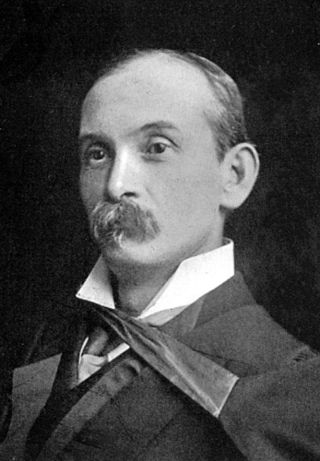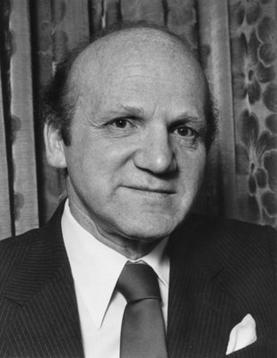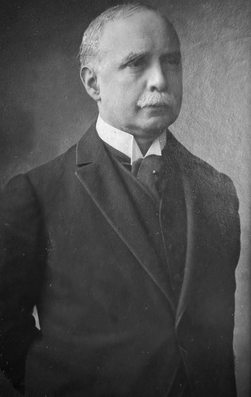
Sir John William McNee FRSE DSO (1887-1984) was a 20th century British pathologist and bacteriologist.

Sir John William McNee FRSE DSO (1887-1984) was a 20th century British pathologist and bacteriologist.
He was born on 17 December 1887 in Mount Vernon in north Lanarkshire (now part of Glasgow the only son of John McNee. The family moved to Newcastle-upon-Tyne in his childhood and he was educated there at the Royal Grammar School. He then returned to Scotland to study Medicine at Glasgow University, graduating MB ChB in 1909. [1]
He then began lecturing in Pathology at the university under Sir Robert Muir. In 1911 he was awarded a McCunn Scholarship and with a further Carnegie Research Fellowship in 1912 he travelled to Freiburg University in Germany to do postgraduate studies. Returning in 1914 he received his doctorate (MD) plus both the Bellahouston Gold Medal and John Hunter Gold Medal. [2]
In the First World War he served as a Major in the Royal Army Medical Corps in France, being Mentioned in Dispatches. He did important work relating to both Trench fever and Gas gangrene, and on war nephritis and chlorine poisoning, receiving the Distinguished Service Order (DSO) for his work. The research included probably the first autopsies of gas-poisoned soldiers on the battlefront. He was also awarded the Order of Aviz. [3] After the war he moved to University College Hospital in London, working under T. R. Elliot. In 1924 he obtained a Rockefeller Scholarship and went to Johns Hopkins University in Baltimore, USA, as an Assistant Professor studying coronary artery thrombosis, becoming an expert in this field. On his return to Britain he was offered the Chair in Practical Medicine at his alma mater of Glasgow University and accepted this.
In the Second World War he held the unique title of Surgeon Rear Admiral to the Royal Navy for Scotland and he Western Approaches. In 1939 he was elected a Fellow of the Royal Society of Edinburgh. His proposers were John Walton, Thomas Murray MacRobert, Edward Hindle and George Barger. [4]
He served as president of the British Medical Association in 1954.
He died on 26 January 1984 aged 96.
In 1929 he married a medical researcher, Geraldine Le Bas (d.1975). They had no children.

Sir Robert Muir, FRS, FRSE, FRCP, FRCPE, FRFPSG was a Scottish physician and pathologist who carried out pioneering work in immunology, and was one of the leading figures in medical research in Glasgow in the early 20th century.

Air Marshal Sir Harold Edward Whittingham was a British physician notable for a distinguished medical career in the Royal Air Force and contributions to Aviation medicine. After graduating from the University of Glasgow, he was the first pathologist and Assistant Director of Research at the Beatson Institute for Cancer Research in Glasgow.

Professor John Glaister was a Scottish forensic scientist who worked as a general practitioner, police surgeon, and as a lecturer at Glasgow Royal Infirmary Medical School and the University of Glasgow. Glasgow University's Glaister Prize is named in his honour.

Sir Abraham Goldberg was a British physician who was a Regius Professor of the Practice of Medicine at the University of Glasgow. He was educated at George Heriot's School in Edinburgh and the University of Edinburgh.
Jonathan Campbell Meakins was a Canadian physician and medical author and member of the Canadian Medical Hall of Fame. In authorship he is known as J. C. Meakins. He published over 160 works, including the textbook The Practice of Medicine. He was also the founder and first president of the Royal College of Physicians and Surgeons of Canada. He was the Dean of the McGill University's Faculty of Medicine from 1941-1948.

Charles Frederick William Illingworth was a British surgeon who specialised in gastroenterology. Along with a range of teaching and research interests, he wrote several surgical textbooks, and played a leading role in university and medical administration.
John Russell Anderson was a Scottish pathologist, Professor of Pathology at the Western Infirmary, University of Glasgow, 1967–1983. Colleagues knew him as JRA.
Archibald Douglas McAlpine was a British neurologist who pioneered research into multiple sclerosis. His book Multiple sclerosis, published first time in 1955, has since his death been published with the title McAlpine's Multiple Sclerosis, and has become the standard reference for multiple sclerosis researchers. Dr McAlpine was the first one to suggest mercury poisoning as the probable cause for the Minamata disease.
Brigadier Sir Lionel Ernest Howard Whitby, CVO, MC was a British haematologist, British Army officer and academic. He served as Regius Professor of Physic at the University of Cambridge from 1945 to 1956, Master of Downing College, Cambridge from 1947 to 1956, and Vice-Chancellor of the University of Cambridge from 1951 to 1953.
Sir David Campbell MC FRSE (1889–1978) was a Scottish physician and pharmacologist. He was Professor of Materia Medica at Aberdeen University from 1930 to 1959. He won the Military Cross in 1918 due to his bravery serving in the Royal Army Medical Corps.

Sir Robert William Philip was a Scottish physician and pioneer in the treatment and control of tuberculosis.
David White Finlay FRSE FRCP (1840–1923) was a Scottish physician and yachtsman. He was Regius Professor of Medicine at Aberdeen University 1891 to 1912. He was Honorary Physician to the King in Scotland to both King Edward VII and King George V.
David Dale Logan was a distinguished Scottish physician, soldier and medical author. He was an expert on gas warfare, and, as an odd attachment to a medical training, was an expert mining engineer.

Sir Ewen John Maclean was a British physician, who was the first Professor of Obstetrics and Gynaecology at the Welsh National School of Medicine.

Sir John McMichael FRSE LLD (1904-1993) was a 20th-century Scottish cardiologist. He developed the Royal Post Graduate Medical School at Hammersmith.
Dr Edward Rowland Alworth Merewether FRSE CB CBE (1892-1970) was a British barrister and physician. He was an expert in industrial medicine and the laws linked to this, working especially with asbestosis. In 1944 he was appointed Honorary Physician to King George VI. Close colleagues called him "Uncle M". In authorship he is known as E. R. A. Merewether.
Rona McLeod, Lady Black, CBE FRSE FMedSci FRCP FRCPath, known professionally as Rona MacKie, is a Scottish dermatologist.
Sir Henry Harold Scott KCMG FRSE FRCP FRCS was a 20th century British pathologist, bacteriologist and medical author. He was President of the Royal Society of Tropical Medicine and Hygiene 1943-1945.

Edwin BramwellFRSE FRCPE LLD (1873–1952) was a 20th-century Scottish neurologist. He was President of the Royal College of Physicians of Edinburgh from 1933 to 1935.
Prof Harold Charles Stewart CBE FRCP FRCS FRSE FFA DL was a 20th-century British pharmacologist and medical author. He was Deputy Lieutenant of Greater London from 1967 to 1982.